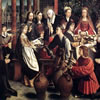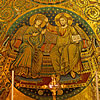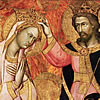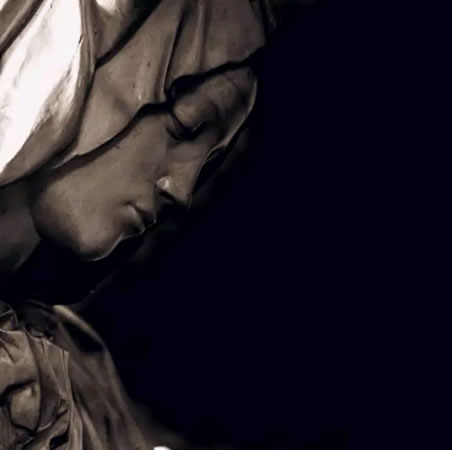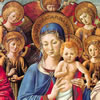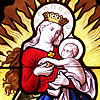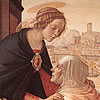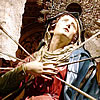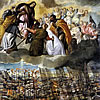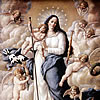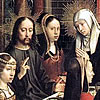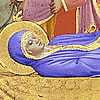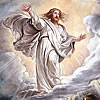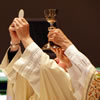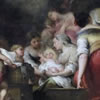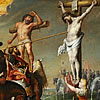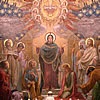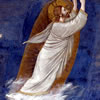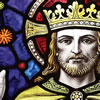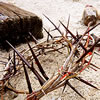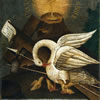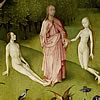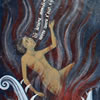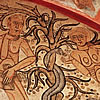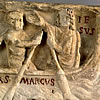Protecting Christ's Identity using the title "Mother of God"
In our celebration of the Solemnity of the Mother of God, we declare Mary as Theotokos – the “God-Bearer.” It is not so much for Mary’s sake that we proclaim this, but to protect the identity of Christ. Here’s how we defend it.
Jesus is both human and divine. As such, he has two will – one human, and one divine – that are constantly in communication with one another. In the study of Christ, this is called, Communicatio Idiomatum – the “communication of properties.” Although Christ has two wills, the divine will always work through the human will.
If it seems we are talking about two persons, that is incorrect. There is only one person. A person is an identity. When we ask Christ, “who are you,” we are asking his identity. The correct answer is he is the Second Person of the Trinity. A person also has a nature. When we ask Christ, “what are you?” the correct answer is that he is human, and he is divine. So Jesus is one person, the Second Person of the Trinity, but who has two natures. How can we say that?
Because of the communication idiomatum, whatever we say of one of the natures is true for the whole of Christ. For example, since Jesus has a human nature, we say he is fully human. Since Jesus also has a divine nature, we say he is fully divine. This is how we can say Jesus is both fully human, and fully divine at the same time. Since Mary is the mother of Jesus who is fully divine, we say she is the Mother of God.
Nestorius was the poster child of those who will not accept calling Mary under this title because they think it is tantamount to making her a goddess. Today others don’t subscribe to this title because they think it means Mary came before God. But they are missing the point, and we will get to that in a bit.
Many theories were put forward to quash the title Mother of God. Nestorius even put together the idea that in Jesus there were two persons: one human, and one divine. That’s absurd because that’s like having a split personality. There are even iterations of this idea today. For example, some think the Second Person of the Trinity became human, and in so doing lost his divinity and became only human in Jesus. There is an opposite idea that claims the Second Person of the Trinity only took human form and pretended to be human. So he pretended to suffer and be crucified during the Passion? No, no, no! Once again: there is one person, the Second Person of the Trinity, who assumed humanity without losing his divinity.
You can see how the Church had to hammer out the true identity of Christ by knocking down heresies, one of which was to call Mary, “Mother of Christ” but not, “Mother of God.” This, they claim, is because Mary did not give Christ his divinity. Therefore, she is just the mother of Christ’s humanity. But that is to misunderstand motherhood. Mothers DO NOT give birth to natures or component parts!
When a child is conceived, a father and mother contribute to the body, but it is God who provides the spirit so that the body is given life. But when the child is born, we don’t say that the mother is the mother only to the body of the child. No, a mother is a mother to her child – body, spirit, and nature. That is because mothers do not give birth to component parts but to whole persons. Regardless of who contributed the parts or the natures, she is mother of the person to whom she gave birth. In the same way, Mary did not give birth to the human nature of Jesus, but to the whole person – body, soul, human nature, and divine nature.
Here is the point that heretics miss: the title “Mother of God” is not so much a statement about Mary’s identity but of her son’s. It does not elevate Mary to goddess status. It is not meant to indicate she came before God. The title, in its sheer simplicity, states what it is we believe – that Jesus is God.
Another title we give Mary is “Destroyer of Heresies.” We can see why. The title attributed to her, “Mother of God,” safeguards our idea of her son’s humanity and divinity. Even as a title, she defends the identity of her son. What a mother!

A Sky Full of Stars
Know Our Lady through her Titles in the Litany
The Church helps us understand who Mary is by honoring her with different titles in the Litany of the Blessed Virgin Mary. Unfortunately, over time and difference of culture, we might not grasp what it is the Church is ascribing to her and lose that opportinity to get to know her.
In A Sky Full of Stars, each title of the Litany is explained so we get know Mary more and fall in love with her all over again.
Get your copy now either in Hardbound, Paperback, or Kindle
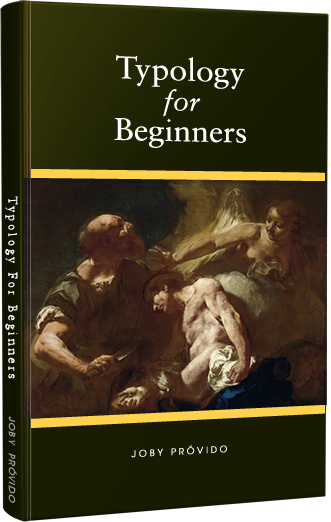
Typology for Beginners
A Catholic Perspective on understanding the New Testament through the Old Testament
First-century Jews converted to Christianity in droves because of the way the New Testament was written to show Jesus was the Messiah promised by the Old Testament. We also learn about how Mary is the New Eve and the Ark of the Covenant in the way the writers portray her.
Through typology, the patterns that connect the Old and New Testaments make the Bible stories more accessible so that one becomes excited to read Sacred Scripture again.
Get your copy now either in Hardbound, Paperback, or Kindle
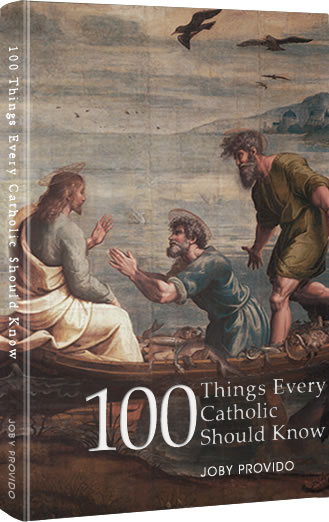
100 Things Every Catholic Should Know
Whether or not you are new to the Catholic Church, or struggling, or lapsed, or dynamically involved, this book will enlighten you with the essentials of the Faith that have been handed down to us by the apostles.
Each of the 100 topics is easy to read and distilled into bite-sized portions. Through cross-referencing, the book also shows how the topics are interrelated. Those who are new to the Faith will find this book an edifying handy reference, and those who have simply forgotten will find it a great review material that might spark a new love for God and religion.
Get your copy now either in Hardbound, Paperback, or Kindle
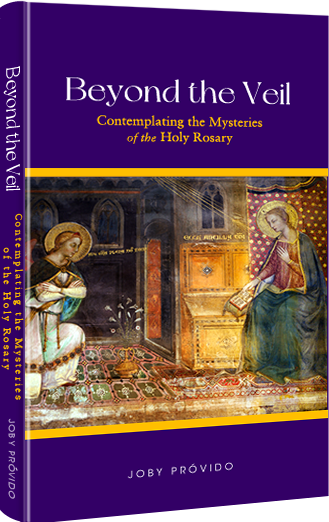
Beyond the Veil
Contemplating the Mysteries of the Holy Rosary
Prayer giants like Pope St. John Paul II, Pope Paul VI, Bl. Archbishop Fulton Sheen, and Bishop Robert Baron advocate that we contemplate on the mysteries of the rosary while we say the vocal prayers. Unfortunately, there are not many books that teach us how to do this. Beyond the Veil comes to the rescue by suggesting seven ways we can pray the rosary the way it was intended.
The larger part of the book offers mental images for each of the mysteries we can use in our contemplation, for how can we imagine the scenes in the rosary if we don't know about them?
Get your copy now either in Hardbound, Paperback, or Kindle




